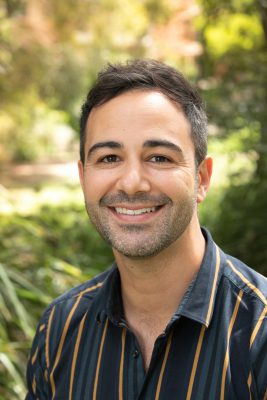Davide Di Pietro
Clinical Social Worker | AMHSW
When we think of trauma, we think of events that involve threats of death or serious injury. A traumatic experience might be one of war, a serious accident, physical assault or natural disaster. In our day-to-day life we are exposed to words, stories and images of such traumatic events through the media and internet. Most people will at some stage experience firsthand a traumatic even in their lifetime, and in Australia the most common traumatic events are: 1) having someone close to you die suddenly, 2) seeing someone badly injured or killed, or unexpectedly seeing a dead body and 3) being in a life threatening car accident.
Traumatic events cause emotional distress for most people, and although most people seem to recover in the first week or two following a trauma with help from their friends and family, for others the effects can be much longer lasting and impactful. Fiona McIlwaine and Kerry O’Sullivan (2015) shape the term trauma into two main groups, they refer to ‘Big-T’ trauma as the experiences involving actual or perceived threat to life as described above, and ‘Small-T’ which they refer to as non-life-threatening but distressing non-the-less, for example: discrimination, racism, bullying or parental separation. Although this distinction can be useful, it is important not to make the mistake of thinking that an individual’s experience of a ‘small-t’ trauma is relatively less in their effects. For children and adults alike, parental separation means redefining ‘family’, which for much of our lives is at the very core of who we are as individuals. It is therefore not too much of a stretch to consider that this experience leaves us feeling threatened, feeling traumatised.
In the past 15 years we have learned so much about the human brain, how it works and how it is affected by trauma. What we know is that one of the main ways that trauma affects a person is in the capacity to regulate emotions. After going through a traumatic or distressing experience, the brain becomes primed to react when it senses danger and can get lodged in the primitive state of the fight, flight or freeze responses. What we see when this happens is poor impulse control, that can result in a range of behaviours such as verbal abuse, physical aggression, withdrawal or dissociative responses. It is important to acknowledge that children are particularly vulnerable to experiencing trauma because their brains are not fully functioning yet.
Distressing experiences affect the whole family system. Dr Murray Bowen, a renowned family therapist believes that individuals cannot be understood in isolation from one another, and he believes that we exist in a system of complex emotional and behavioural interactions. Of course then a big challenge for families going through separation is managing their own reactions and responses to difficult situations when interacting with their children and ex-partner.
The Family Clinic at the Resilience Centre is dedicated to supporting separating families through what can be a traumatic experience for adults and children. We work with adults, children and families at all stages of this adjustment. We understand that taking care of yourself is the first part of keeping safe and helping your family to co-regulate.
Practical tips for looking after yourself through separation:
- Good communication
- Check how you react to other people. A good portion of your communication occurs non-verbally, i.e. through your facial expression and body, tone and voice volume.
- Be open with your friends about what you need in order to maintain your friendships. Agree not to discuss or criticise your child’s other parent.
- Keep things business-like with the other parent. Avoid making things about each other and focus more of what your children need.
- Look after your body
- If you have trouble sleeping, a pre-sleep routine, often referred to as good sleep hygiene can help.
- If you notice that you have lost your appetite, try to eat smaller portions more regularly and choose foods that you like.
- Ask a friend to teach you how to cook if this is not a skill that you have had much practice at.
- Talking to a professional about some of the challenges that you may experience in regards to going through separation can be helpful in providing you with information about what is usual and what to expect, as well as helping you to work towards rebuilding your sense of self and your family.
References
Australian Centre for Posttraumatic Mental Health (2013) Recovery after trauma: A quide for people with Posttraumatic Stress Disorder. University of Melbourne..
Commonwealth of Australia (2004) What about me? Taking care of yourself. Practical ideas on looking after yourself after separation. Child Support Agency, Looking Glass Press.
McIlwaine, F., & O’Sullivan (2015) ‘Riding the Wave’: Working Systemically with traumatised families. Australian and New Zealand Journal of Family Therapy, 36, pp. 310-324.







